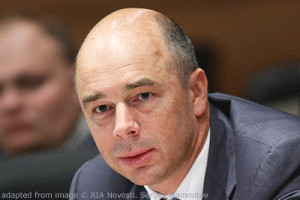RUSSIALINK: “Pandemic to cost Russia 9% of GDP in 2020-2021 – Siluanov” – Interfax

MOSCOW. Oct 26 (Interfax) – Measures to combat the coronavirus pandemic and cover the budget revenue shortfall will cost Russia around 9% of its GDP in 2020-2021, Finance Minister Anton Siluanov said.
“Support for our citizens and businesses and healthcare modernization has already cost the budget nearly 5 trillion rubles in additional spending or around 4.5% of GDP. This is money stipulated by a national plan for a wide range of issues. This year and next year combined it will cost around 9% of GDP,” Siluanov told the Rossiya 24 TV channel.
“We ought to reach pre-crisis economic development parameters as early as the end of 2021,” he said regarding budget projections.
Siluanov said there would be a budget deficit in 2020 although a surplus had been planned, and there had been a sharp reduction of revenue. National Wealth Fund money will be used to plug the deficit if oil prices fall below the baseline set by the budget. The NWF will be tapped to support the budget “only if we see oil prices falling and the need to support the restoration of the revenue shortfall,” Siluanov said.
“The NWF is there to insure us against a drop in oil prices. If we need additional resources we’ll look for them like we have already done this year, by borrowing more, buy redistributing priorities within our budget. The decision in the framework of the national plan for economic recovery is in effect until the end of this year. This plan will be in effect next year also. The necessary funds have been provided for next year as well. I’m hoping these panned decisions will be enough and we won’t have to take any additional unplanned measures,” he said.
“I hope the situation we are facing now, the second wave, will not be as lengthy and that we’ll be able to find the resources to respond to the situation that is unfolding,” Siluanov said.
Asked whether any of the support programs in place this year would be extended if the situation worsens, he said the most sensitive issue for small businesses, that of reduced insurance contributions, would constantly be in effect.
“A whole range of measures to support health care was adopted, and we’ll be prepared to look at these decisions if necessary. The response set down as part of the national plan concerns both people and entrepreneurs, many of those measures are in effect today. One would hope no further decisions are going to be needed. But we’ll be monitoring the situation very clearly, watching how events unfold and reaching decisions very quickly if necessary,” he said.
